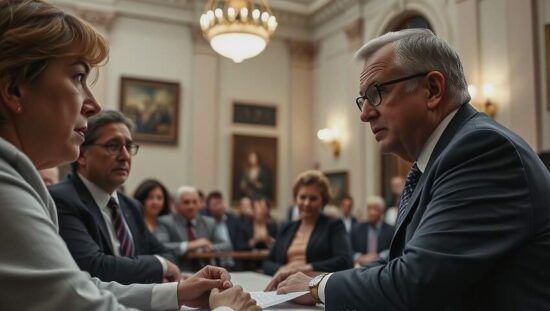Unease ripples through Berlin’s governing coalition following reports of a proposed US peace plan for Ukraine, prompting concerns that the strategy unduly favors Russian positions and risks undermining Kyiv’s security. SPD parliamentary group deputy leader Siemtje Möller expressed alarm, stating the reported concessions made by US negotiators appear to align “almost to the extent of Russian maximal demands.
While acknowledging the resumption of diplomatic talks as a positive development, Möller emphasized the critical need to avoid circumventing Ukrainian leadership in any negotiation process. Ukrainian President Volodymyr Zelenskyy has repeatedly voiced his willingness to engage in discussions and pursue an immediate ceasefire and Möller insisted that Europe must present a unified front in support of Ukraine, protecting it from forced compromises that would weaken the nation and endanger European security. A peace built on Ukraine’s diminishment, she warned, risks empowering Putin to return with renewed aggression after a brief respite.
Reportedly, the proposed plan, spearheaded by Steve Witkoff, outlines provisions including the full cession of the contested territories of Donetsk and Luhansk by Ukraine, a significant reduction in Ukraine’s military and limitations on certain long-range weaponry.
The concerns extend beyond the SPD. Jürgen Hardt, the CDU/CSU parliamentary group’s spokesperson on foreign policy, echoed the sentiment, stating that the publicly known “28 points” of the plan seem to present an imbalanced dynamic detrimental to Ukraine. He cautioned against concessions to Russia regarding issues that could prevent future conflict, highlighting the importance of maintaining Ukrainian strength and ensuring the freedom of the people in Donbas and Luhansk to determine their own destinies.
Hardt warned against allowing Russia to reap any material gains, arguing that such an outcome risks perpetuating the Kremlin’s war logic. He, however, acknowledged the potential positive influence of former US President Trump, noting his track record of mediating conflicts and his apparent desire to forge peace. “We must acknowledge that, with his dynamism, he has already extinguished several conflict hotspots” Hardt stated.
The German government intends to closely monitor the process of ending the Ukraine conflict alongside its allies, actively demanding a voice in the negotiations. While welcoming positive contributions from the US, Hardt affirmed that Berlin will also openly articulate its concerns, emphasizing the far-reaching implications for Europe’s future.





